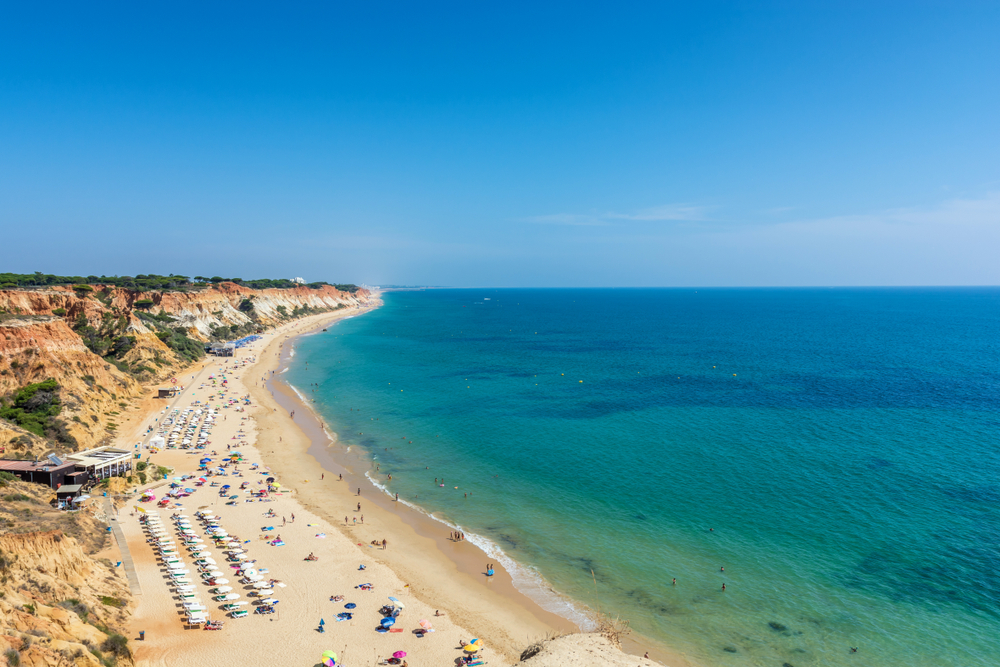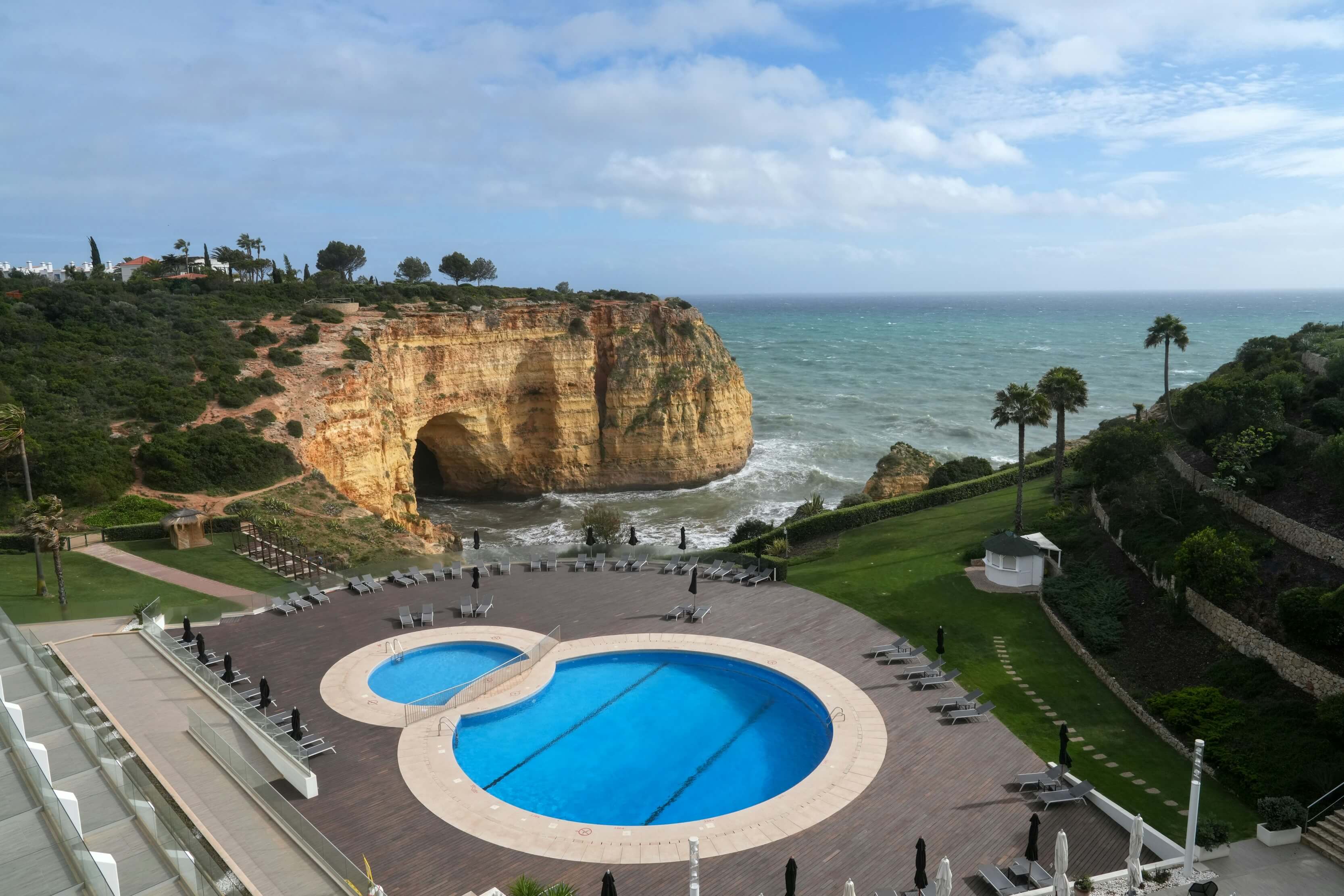
Known for its cultural depth, historic charm, world-class wine regions, and stunning coastlines, Portugal has become a premier destination for global travellers.
A growing influx of holidaymakers to Portugal has fuelled its now booming hospitality market, partly led by boutique hotels that appeal to discerning, experience-seeking visitors from the US, UK, Europe, and beyond.
Let’s explore why investing in Portugal’s boutique hotel sector is so appealing, the best locations in Portugal to invest in boutique hospitality, the options you can take to invest in boutique hotels and hospitality assets in Portugal, and what you must know before investing in Portugal’s boutique hotel sector.
Why Portugal’s boutique hotels are a top investment opportunity in 2025
Tourism in Portugal is on a record-breaking trajectory. In 2024 alone, the country welcomed just under 30 million international visitors, a number expected to climb further in 2025.
International visitor spend alone is projected to reach €33.1 billion in 2025 (a 24.2% rise on 2019), while domestic tourism spending is expected to grow by 59.5% to €22.9 billion.
Some of the reasons for this include:
Portugal's diverse landscapes, mild climate, and 300 days of sunshine annually make it a year-round destination for cultural, culinary, and nature-based tourism.
Government investment in tourism infrastructure, including airports, roads, and hospitality training, is enhancing visitor experiences.
Low-cost and direct international flights make Portuguese cities and regions more accessible than other luxury locations.
Portugal’s safety and high quality of life appeal to tourists seeking secure and welcoming holiday spots.
UNESCO World Heritage sites, historic towns, and rich cultural traditions offer unique experiences across Portugal.
Food, drink, and dining tourism draws global travellers seeking authentic gastronomy to Portugal, which is especially famous for its wineries and vineyards.

Why boutique hotels in Portugal are an appealing investment choice
Discerning travellers increasingly seek intimate, design-led, and locally rooted stays—preferences that boutique hotels in Portugal are uniquely positioned to serve.
While larger hotel chains battle for occupancy and scale, boutique properties offer higher nightly rates, strong occupancy in prime markets, and lower operational costs when run effectively.
In fact, in many locations across Portugal, small luxury accommodations outperform traditional hotels in RevPAR (Revenue per Available Room) and guest satisfaction.
Boutique hotels in Portugal often achieve above‑average RevPAR, particularly in premium urban markets like Lisbon and Porto, where RevPAR exceeded €112 in Q2 2025, compared to the national average RevPAR of around €65.4.
Other potential benefits for boutique hotel investors in Portugal include:
- Net yields of 5–8% are realistic for well-managed short-term rental properties. Substantial seasonal price variation and differentiated experiences can boost returns further.
- Capital appreciation through Portugal’s rising property values in key regions.
- Personal use flexibility allows owners to enjoy their property when they want throughout the year and then monetise it the rest of the time.
Top places to invest in boutique hotels in Portugal
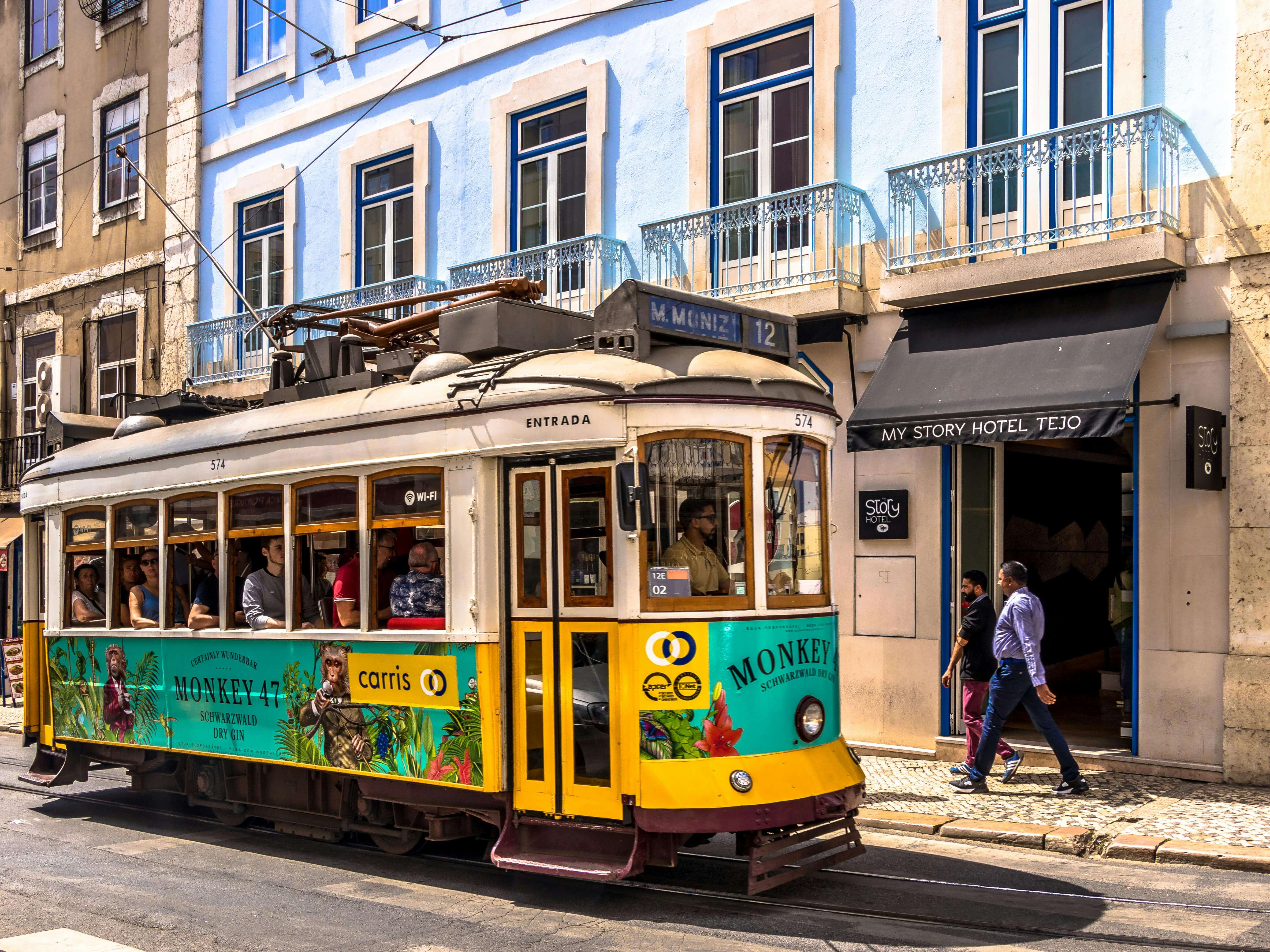
Lisbon
Lisbon’s historic charm, vibrant cultural scene, and growing business scene drive year-round demand from both luxury holiday stays and professional stopovers.
Portugal’s capital is ideal for short-stay boutique hotels, especially those catering to digital nomads, remote workers, and cultural tourists drawn by its rich history, acclaimed gastronomy, and dynamic arts scene.
Douro Valley
Wine tourism is rising, with Portugal’s vineyard regions increasingly attracting affluent travellers searching for authenticity, nature, and immersive experiences.
Boutique hotels in this region would appeal to discerning guests looking to disconnect from urban life while enjoying wine tastings, farm-to-table cuisine, and access to some of Europe’s most scenic countryside.
Comporta & Alentejo Coast
Often dubbed Portugal’s answer to the Hamptons, this under-supplied, ultra-premium coastal region is gaining traction among high-net-worth travellers seeking privacy, sophistication, and a slower pace of life.
Home to unspoiled beaches, a refined yet understated atmosphere, and growing international appeal, the region offers substantial potential for boutique developments prioritising experience-led hospitality.
Porto
With a booming visitor economy and more accessible property prices than Lisbon, Porto’s rich architectural heritage—especially art deco and early 20th-century buildings—offers prime opportunities for boutique hotel conversions that preserve character while introducing modern comforts.
Porto’s growing international interest, improved infrastructure, and a strong events calendar mean the city is fast becoming a hotspot for investors seeking value and authenticity in Portugal’s hospitality market.
Algarve
Boasting year-round sunshine and established appeal among golf enthusiasts and affluent families, the Algarve offers a stable foundation for hospitality investment.
The region’s golden beaches, famous golf courses, and relaxed lifestyle attract repeat visitors seeking recreation and comfort.
This means boutique resorts and experiential stays that highlight local culture, wellness, and outdoor activities are well-positioned to thrive, especially near the coastline.
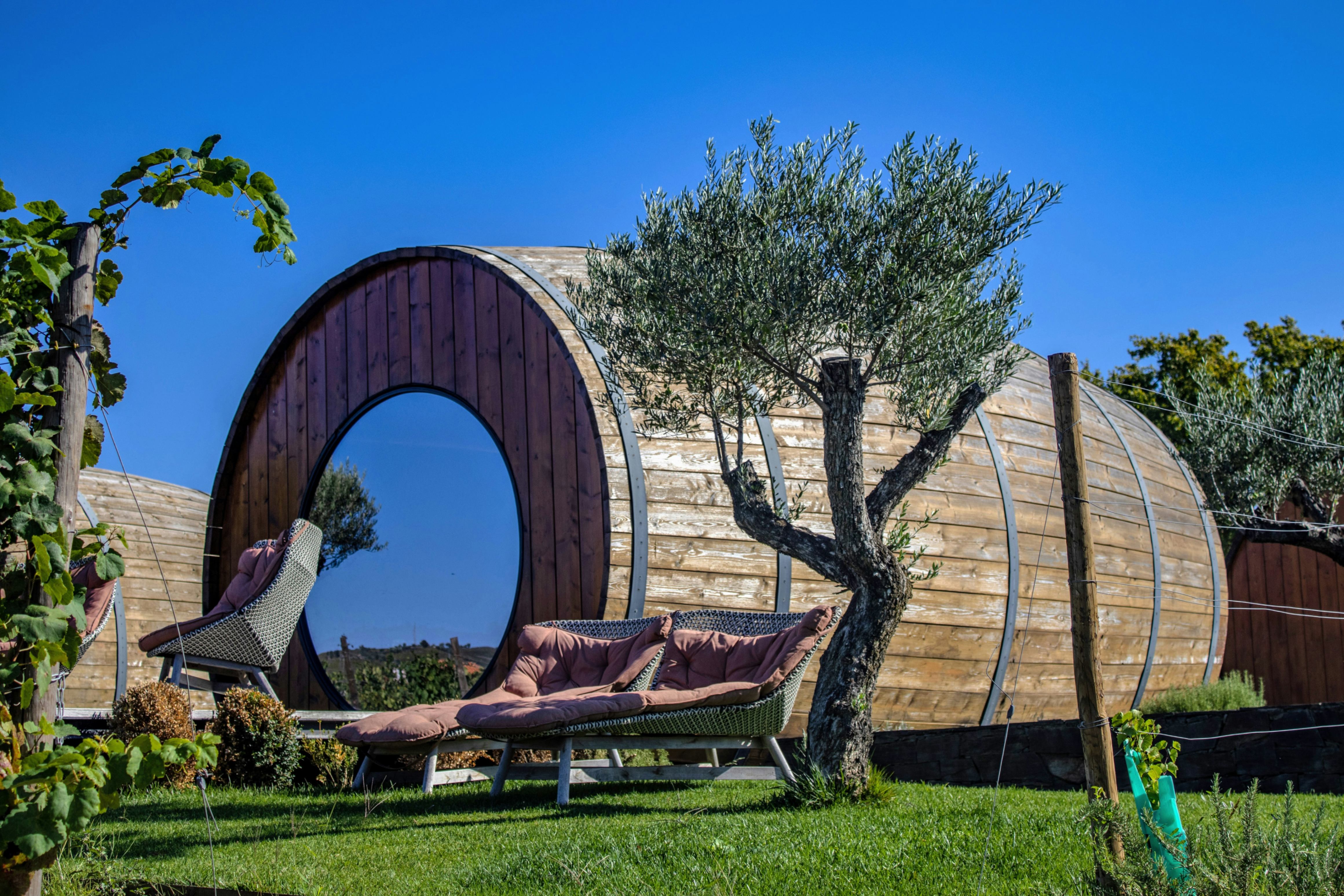
How to invest in Portugal’s boutique hotel market
There are two typical ways investors can access Portugal’s boutique hotel investment market:
1. Direct ownership
Lifestyle investors can enter the boutique hotel market by purchasing an existing hotel or a property for conversion.
As the owner, you can manage the hotel yourself or partner with a professional management company to handle operations, benefiting directly from profits and long-term property appreciation.
However, direct ownership often demands more hands-on involvement and in-depth market knowledge. Significant upfront capital and ongoing costs, such as staffing and renovations, must also be considered.
This model suits experienced hospitality investors, active entrepreneurs, or those seeking a legacy or lifestyle investment.
2. Hospitality investment funds
For those seeking a more hands-off approach to the boutique hotel market, regulated hospitality investment funds offer a compelling alternative to direct ownership.
These funds pool investor capital to acquire, develop, or manage a diversified portfolio of hospitality assets across Portugal, including boutique hotels.
Investing in a fund exposes you to the potential returns of Portugal’s growing tourism and lifestyle sector without the operational burden of running a hotel.
How to invest in hospitality funds in Portugal to qualify for Portugal’s Golden Visa
Some Portuguese investment funds are structured to meet Golden Visa residency by investment eligibility criteria, meaning investors can also qualify for residency by investment in Portugal when investing in an alternative fund in Portugal, such as a hospitality fund.
An example of this is the Portugal Future Fund, which follows a multi-sector diversification strategy, targeting key growth areas within Portugal’s economy, including luxury tourism and hospitality.
The minimum investment under this route remains €500,000. Eligible investors and their qualifying family members gain Portuguese residency and freedom of movement across the 29 EU Schengen region countries, while only being required to spend a minimum of 7 days per year in Portugal.
However, not all hospitality funds are eligible for Portugal’s Golden Visa. To qualify, a fund must:
- Be registered with the CMVM (Portuguese Securities Market Commission).
- Be explicitly approved for the Golden Visa residency-by-investment programme by AIMA (formerly SEF).
Before proceeding, investors should request documentation confirming the fund’s compliance with current Golden Visa rules.
Before making any investment to obtain Portugal’s Golden Visa, it is essential to consult expert professionals who can provide up-to-date guidance on fund eligibility, regulatory compliance, and the latest legal requirements under the Golden Visa programme.
The hospitality investment fund model suits investors who prefer passive income, portfolio diversification, and professional oversight, or those looking to qualify for residency through investment without taking on the complexity of owning and operating a hospitality asset themselves.
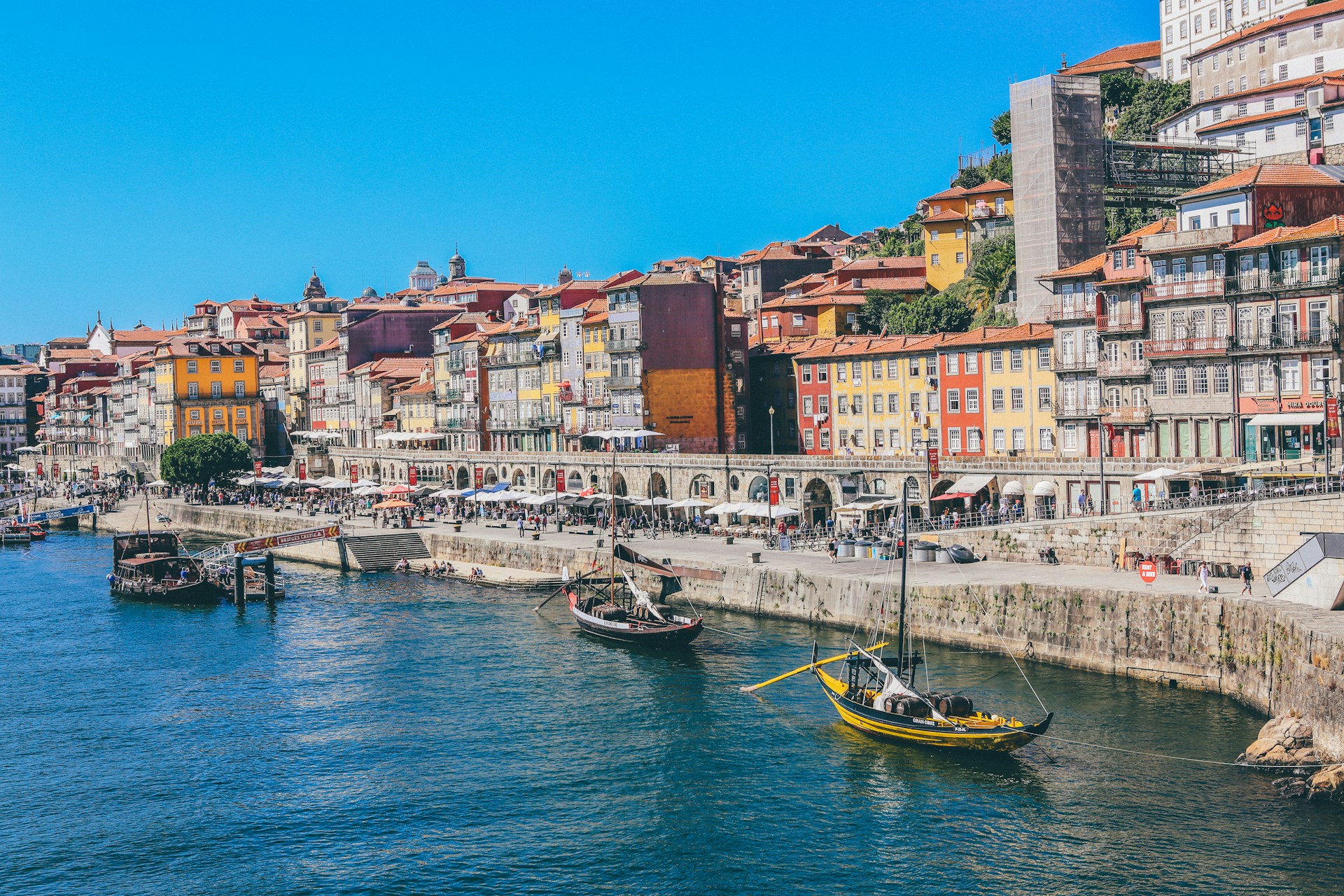
What You need to know before investing in boutique hotels in Portugal
Licensing
Before purchasing your intended property, you must ensure your property qualifies for either alojamento local (short-term rental) or hotelaria (hospitality) licensing.
It's also essential to verify zoning laws, condominium rules (for apartments), and municipal policies before investing to avoid regulatory hurdles that could limit your ability to operate legally and profitably.
Operational management
Strong management is critical to maximising occupancy, revenue, and guest satisfaction; poorly managed boutique hotels quickly fall behind in reviews and yield.
Consider partnering with experienced boutique hospitality operators specialising in your region or co-investing with a complete turnkey service team. These partnerships can ensure high service standards while freeing you from day-to-day responsibilities.
Design & differentiation
In Portugal's competitive hospitality market, properties that tell a story and deliver an authentic, memorable experience stand out.
Prioritise thoughtful architectural design, locally inspired interiors, and unique touches such as curated cultural experiences, wellness offerings, or sustainability credentials.
Want to learn more about real estate and investment in Portugal?
Book a no-obligation discovery call with a Portugal Pathways advisor to access expert support on real estate, tax structuring, investment in Portugal, and Portugal’s Golden Visa residency by investment programme by clicking here.
FAQs
What makes Portugal an excellent destination for boutique hotel investments?
Portugal offers a mild climate, year-round tourism, cultural heritage, and a booming hospitality market. The country attracts international visitors and digital nomads, with key cities like Lisbon and Porto becoming prime destinations for boutique hotels. Portugal's safety, affordability, and growing infrastructure make it an attractive investment location.
What are the most profitable regions to invest in boutique hotels in Portugal?
Key regions include Lisbon, the Douro Valley, Comporta & Alentejo Coast, Porto and the Algarve.
What is the typical return on investment (ROI) for boutique hotels in Portugal?
Boutique hotels in prime locations like Lisbon and Porto can potentially generate 5-8% net yields, with additional upside potential through seasonal pricing and unique guest experiences. In some cases, boutique hotels outperform traditional hotels in revenue per available room (RevPAR), especially in high-demand regions.
What are the different ways to invest in Portugal’s boutique hotel market?
There are two main investment options:
Direct Ownership, Purchase an existing boutique hotel or suitable property to convert, and either manage it yourself or partner with a management company.
Hospitality Investment Funds: Pool resources with other investors through regulated funds that acquire and manage boutique hotel assets. This offers a more hands-off investment approach.
Can I qualify for a Golden Visa by investing in a boutique hotel in Portugal?
Yes, if the investment is made through a qualifying alternative investment fund regulated in Portugal’s Golden Visa. Direct ownership of a boutique hotel property and/or business does not qualify.
Before making any investment to obtain Portugal’s Golden Visa, it is essential to consult expert professionals who can provide up-to-date guidance on fund eligibility, regulatory compliance, and the latest legal requirements under the Golden Visa programme.
Arrange a no-obligation discovery call with Portugal Pathways to speak with an expert advisor.
What licensing is required to operate a boutique hotel in Portugal?
Before purchasing or converting a property into a boutique hotel, you must ensure it complies with alojamento local (short-term rental) or hotelaria (hotel) licensing requirements. Zoning laws and municipal policies must also be verified to avoid legal hurdles.
What are the potential benefits of investing in a boutique hotel in Portugal?
Potential benefits include:
Net yields of 5–8% are realistic for well-managed short-term rental properties. Substantial seasonal price variation and differentiated experiences can boost returns further.
Capital appreciation through Portugal’s rising property values in key regions.
Personal use flexibility allows owners to enjoy their property when they want throughout the year and then monetise it the rest of the time.
What are the advantages of boutique hotels over larger hotel chains?
Boutique hotels often offer unique experiences, higher guest satisfaction, and can command higher nightly rates than larger chains. They also benefit from strong occupancy rates in prime markets, particularly in urban centres like Lisbon and Porto. Operational costs can be lower if managed effectively, and boutique hotels tend to outperform in RevPAR (Revenue per Available Room).
What are the risks associated with investing in boutique hotels in Portugal?
Risks include fluctuations in the tourism market, changing regulations (especially regarding short-term rentals), and the initial capital required for property purchase, renovation, and ongoing operational costs. Market knowledge and a strong operational strategy are crucial to mitigating these risks.
Secure EU Residency Through Portugal’s Golden Visa By Investment
Gain visa-free travel, family inclusion, and a secure path to EU citizenship
Maximise your wealth, tax status, property & life in Portugal
Talk to our expert team, so that we can offer personalised support to meet your specific needs.


